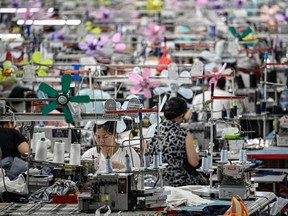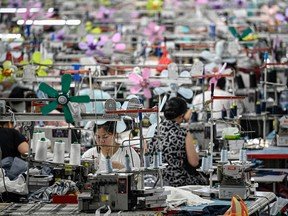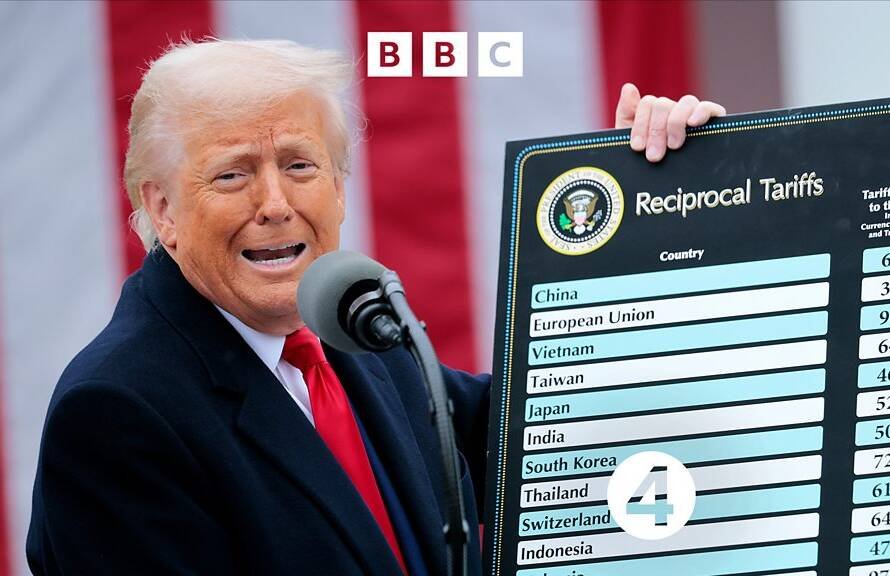President eliminating ‘de minimis’ exemption for goods originating from China and Hong Kong starting on May 2

Article content
Canadian companies, from smaller retail businesses to third-party logistics providers, will soon start paying tariffs on low-value shipments from China and Hong Kong bound for the United States.
Article content
Article content
In a Wednesday executive order, U.S. President Donald Trump declared that he was eliminating the “de minimis” trade provision for goods originating from China and Hong Kong starting on May 2. The trade rule, also called Section 321, allowed goods valued at US$800 and under to enter the U.S. duty-free, allowing bargain e-commerce sites such as China’s Shein and Temu to rapidly expand in the U.S. in recent years. Approximately four million low-value shipments enter the U.S. daily.
Advertisement 2
Article content
Trump initially cancelled the provision in February, but reversed his order the same month until the government could implement new systems to collect the revenue. The White House is now mulling the creation of an “External Revenue Service” to collect new tariff revenues.
While Trump’s order applies only to China- and Hong Kong-origin products, it will have ripple effects throughout the global e-commerce and shipping industries, forcing companies to overhaul their fulfillment and manufacturing strategies.
Under the new trade rules, all low-value imports that originate from China and Hong Kong — even if routed through Canada or Mexico — will be required to pay duties and taxes when they enter into the U.S.
In 2024, around 1.36 billion shipments entered the U.S. under the de minimis rule — an increase of 114 per cent in four years, according to the U.S. Customs and Border Protection. Canada is the third-largest source of de minimis goods into the U.S., accounting for around $5 billion worth of low-value imports in 2021.
The change will strike a blow to discount marketplaces that ship from China and whose business models depend on the de minimis exception. Companies that have shifted to this model in recent years — from Chinese e-commerce platforms to U.S. giant Amazon.com Inc. to smaller Canadian apparel companies — will be forced to pivot and ship in bulk to the U.S., raising costs for the companies and consumers, said Tony Pelli, director of supply chain security and resilience at BSI Consulting.
Article content
Advertisement 3
Article content
“Sending fewer shipments in bulk will cost them less than filing for each individual smaller shipment,” Pelli said.
Companies will now need to pay a 16 per cent tariff on low-value items that previously qualified for de minimis; a baseline 10 per cent tariff on all imports to the U.S.; a 7.5 per cent additional tariff on products from China; as well as the 34 per cent tariff on China-origin goods announced on Wednesday, Pelli said, adding that it wasn’t immediately clear how the latest tariffs would be enforced.
“There’s also a cost in either hiring a customs broker or developing internal expertise to ensure that tariffs are applied correctly, in addition to potential warehousing costs,” he said.
Some companies have explored diversifying their supplier and manufacturing base beyond China. But the U.S.’s latest round of global tariffs — which includes a 46 per cent tariff rate on Vietnam, one of the highest “reciprocal” rates — will likely slow any outsourcing to Vietnam and other manufacturing hubs such as Bangladesh and Thailand, which have been hit with 37 per cent and 36 per cent tariff rates, respectively, said Derek Lossing, a supply chain consultant and founder of Cirrus Global Advisors Inc.
Advertisement 4
Article content
Globally, international air cargo airlines will be forced to redeploy their global air fleets to other markets, Lossing said. He predicts that the industry will take a US$3 billion-plus hit over three years in “lost revenue for airlines and forwarders due to this evolving shift.”
The flow of goods into the U.S. is also set to slow. Customs inspections will become more granular given that “deeper data classifications are required” for goods entering the U.S. without the de minimis provision, Lossing said. “More friction … will slow the delivery of goods by one to two days.”
Recommended from Editorial
Trump’s de minimis cancellation could see other economies retaliate in kind, with the European Union considering eliminating its own de minimis exemption.
“The EU is concerned that this has allowed companies to avoid strict safety, environmental, and intellectual property laws. There has been some indication that the U.K. could follow as well,” Pelli said.
Around 4.6 billion low-value shipments entered the EU market in 2024, a threefold increase over two years.
• Email: ylau@postmedia.com
Bookmark our website and support our journalism: Don’t miss the business news you need to know — add financialpost.com to your bookmarks and sign up for our newsletters here.
Article content




